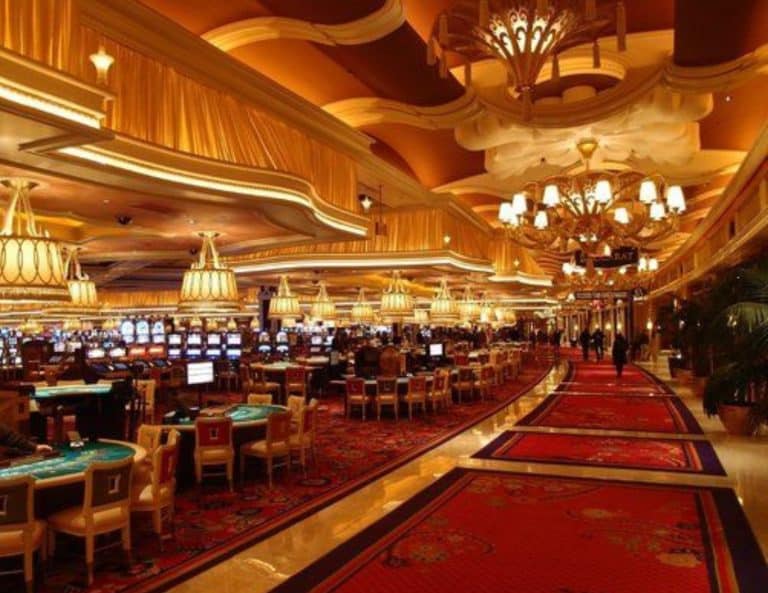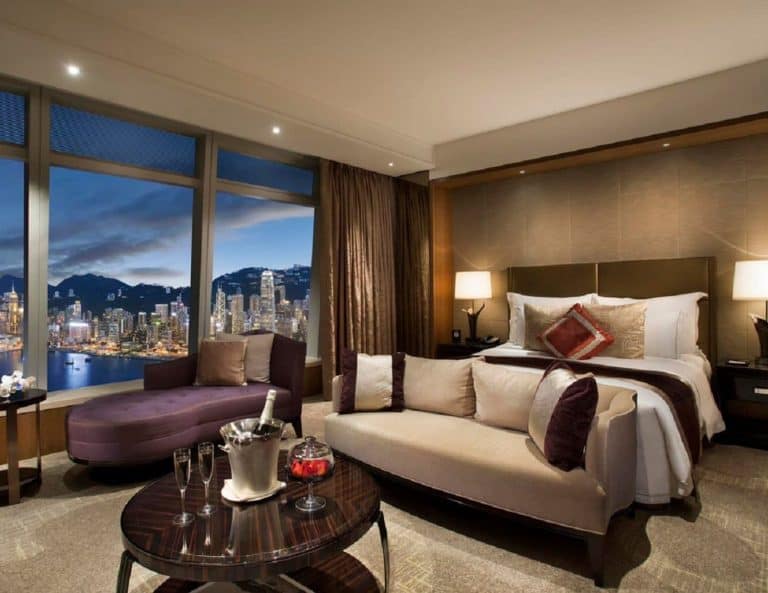Discover the mystery behind the absence of a 13th floor in hotels
If you’re short on time, here’s a quick answer to your question: Hotels often skip the 13th floor due to superstitions and cultural beliefs surrounding the number 13.
In this article, we will explore the reasons behind the omission of the 13th floor in hotels and delve into the fascinating history and cultural significance associated with this phenomenon.
We will also discuss the impact of superstitions on hotel design and the potential psychological effects on guests.
Join us as we unravel the mystery and uncover the reasons why hotels choose to skip the 13th floor.
The Origins of Triskaidekaphobia
Have you ever noticed that many hotels do not have a 13th floor? This omission is not due to a mistake in construction or design, but rather a result of a widespread fear known as triskaidekaphobia – the fear of the number 13. This fear has deep historical and cultural roots, and has influenced various superstitions and practices that continue to this day.
Historical and cultural background
The fear of the number 13 can be traced back to ancient times. In many ancient cultures, the number 12 was considered to be complete and harmonious, representing the twelve months in a year, the twelve zodiac signs, and the twelve gods of Olympus. The number 13, on the other hand, was seen as irregular and unbalanced, and was associated with bad luck and misfortune.
One notable historical event that contributed to the fear of the number 13 is the Last Supper. According to Christian tradition, there were 13 people present at the Last Supper, including Jesus and his twelve apostles. It is said that Judas Iscariot, the apostle who betrayed Jesus, was the 13th person to arrive. This association with betrayal and the subsequent crucifixion of Jesus has further cemented the negative connotations associated with the number 13.
The fear of the number 13
Triskaidekaphobia is not just limited to hotels skipping the 13th floor. Some people go to great lengths to avoid anything related to the number 13. For example, many hotels and airlines do not have a room or seat number 13, and some people even refuse to travel on the 13th day of the month.
This fear can have a significant impact on people’s lives. Some individuals with triskaidekaphobia may experience anxiety and stress when encountering the number 13, leading to avoidance behaviors and a decreased quality of life. In severe cases, it can even develop into a phobia that requires professional intervention to overcome.
Superstitions and their influence
Superstitions surrounding the number 13 are prevalent in various cultures around the world. In Western societies, Friday the 13th is considered to be an especially unlucky day. This superstition has its roots in Norse mythology, where a dinner party of twelve gods was disrupted by the arrival of the mischievous Loki, who became the 13th guest and caused chaos.
These superstitions have led to the exclusion of the number 13 in various aspects of everyday life. For example, many buildings skip the 13th floor, and some cities do not have a 13th street or avenue. Additionally, some people avoid activities such as getting married or starting a new business on the 13th day of the month.
It is important to note that triskaidekaphobia is considered to be an irrational fear, as there is no scientific evidence to support the belief that the number 13 is inherently unlucky. However, the cultural and historical significance of this fear continues to influence our behaviors and perceptions, even in modern society.
Hotels and Superstitions
Superstitions have long played a role in shaping people’s behavior and beliefs. From avoiding black cats to knocking on wood, these cultural beliefs can also be found in the design and layout of hotels. One commonly observed superstition in the hotel industry is the absence of a 13th floor.
The impact of superstitions on hotel design
Hotels often skip the 13th floor due to the superstition surrounding the number 13, which is considered unlucky in many cultures. This belief, known as triskaidekaphobia, can be traced back to various historical and cultural references. Consequently, many hotels opt to omit the 13th floor to avoid potential negative connotations and to cater to guests who may be superstitious.
By skipping the 13th floor, hotels can create a more comfortable and welcoming environment for their guests. While some may argue that it is merely a symbolic gesture, it can go a long way in appeasing guests’ fears and ensuring their overall satisfaction during their stay. After all, providing a stress-free experience is a top priority for the hospitality industry.
Cultural considerations
The avoidance of the 13th floor is not universal and can vary depending on cultural norms and beliefs. In Western countries, the superstition surrounding the number 13 is prevalent, leading to the omission of the 13th floor in many hotels. However, in some Eastern cultures, such as China and Japan, the number 4 is considered unlucky due to its resemblance to the word for “death.” As a result, it is not uncommon for hotels in these regions to also skip the 4th floor.
These cultural considerations highlight the importance of understanding and respecting diverse beliefs when designing and operating hotels. By accommodating the superstitions of different cultures, hotels can create a more inclusive and welcoming environment for their guests.
Appeasing guests’ fears
While superstitions may seem irrational to some, they can have a significant impact on people’s behavior and comfort levels. Avoiding the 13th floor can help hotels alleviate guests’ fears and ensure a positive experience during their stay.
Hotels understand the importance of creating a sense of security and well-being for their guests. By embracing these superstitions, hotels demonstrate their commitment to guest satisfaction and go the extra mile to make their stay as comfortable as possible.
It’s worth noting that not all hotels follow this superstition. Some hotels choose to include a 13th floor, either as a way to challenge the superstition or because they believe it is unnecessary to cater to such beliefs. Ultimately, the decision to include or exclude a 13th floor lies with the hotel’s management and their understanding of their target market.
Psychological Effects on Guests
The power of suggestion
One of the reasons why hotels do not have a 13th floor is because of the psychological effects it can have on guests. The number 13 is often associated with bad luck and superstitions in many cultures around the world. This belief is known as triskaidekaphobia. By omitting the 13th floor, hotels aim to avoid triggering any negative emotions or fears in their guests. It is a way to create a more positive and comfortable experience for their visitors.
Creating a sense of comfort
Hotels prioritize the comfort and satisfaction of their guests. By eliminating the 13th floor, hotels aim to create a sense of comfort and security for their guests. Many people have strong beliefs and superstitions related to the number 13, and by removing it from the floor numbering, hotels can help alleviate any potential anxiety or discomfort. This approach allows guests to feel more at ease during their stay, promoting a positive experience overall.
The placebo effect
The absence of a 13th floor in hotels can also be attributed to the placebo effect. The placebo effect refers to the phenomenon where a person experiences a perceived improvement in their condition or well-being due to the belief that a treatment or intervention is effective, even if it has no direct physiological effect. By removing the 13th floor, hotels are playing into the power of suggestion and the placebo effect. Guests who are aware of the omission may feel more relaxed and at ease, simply because they believe they are on a “safer” floor.
While the absence of a 13th floor may seem like a small detail, it is a strategic decision made by hotels to enhance the overall experience of their guests. By taking into account the psychological effects on guests, hotels can create a more comfortable and enjoyable stay for everyone.
Alternative Approaches
While many hotels choose to skip the 13th floor due to superstitious beliefs, there are alternative approaches that some establishments have taken to address this issue. Let’s explore a few of these innovative solutions:
Different numbering systems
One approach some hotels have taken is to use a different numbering system altogether. Instead of skipping the 13th floor, they simply assign it a different number. For example, the 13th floor may be labeled as the 14th floor or as the “12A” floor. This allows guests to still access the floor without the negative connotations associated with the number 13.
Creative solutions
Another creative solution that some hotels have implemented is to transform the 13th floor into a themed floor or a unique amenity space. Instead of leaving it vacant or skipping it altogether, these hotels have turned the 13th floor into a spa, a fitness center, or a rooftop garden. This not only eliminates the need to skip the floor but also adds value for guests by providing additional facilities and experiences.
The rise of inclusive design
In recent years, there has been a growing movement towards inclusive design in architecture and hospitality. This approach aims to create spaces that are accessible and welcoming to all individuals, regardless of their beliefs or superstitions. As a result, some hotels are now embracing the 13th floor and incorporating it into their design plans. By doing so, they send a message of inclusivity and challenge the superstitious beliefs surrounding the number 13.
It’s important to note that these alternative approaches may vary from hotel to hotel and are not universally adopted. Some hotels still choose to omit the 13th floor altogether due to cultural or regional superstitions. However, the emergence of these creative solutions and the rise of inclusive design demonstrate the industry’s willingness to adapt and challenge traditional practices.
For more information on inclusive design and its impact on architecture, you can visit www.aia.org.
Conclusion
The absence of a 13th floor in hotels is deeply rooted in the fear and superstitions surrounding the number 13.
While it may seem irrational to some, hotels understand the importance of catering to guests’ beliefs and creating a comfortable environment.
By avoiding the 13th floor, hotels are able to alleviate potential anxieties and ensure a positive experience for their guests.
As society evolves, we are seeing alternative approaches emerge, such as different numbering systems and inclusive design, offering a fresh perspective on hotel floor layouts.
Next time you find yourself in a hotel, take a moment to ponder the mystery of the missing 13th floor and appreciate the rich tapestry of cultural beliefs that shape our surroundings.






